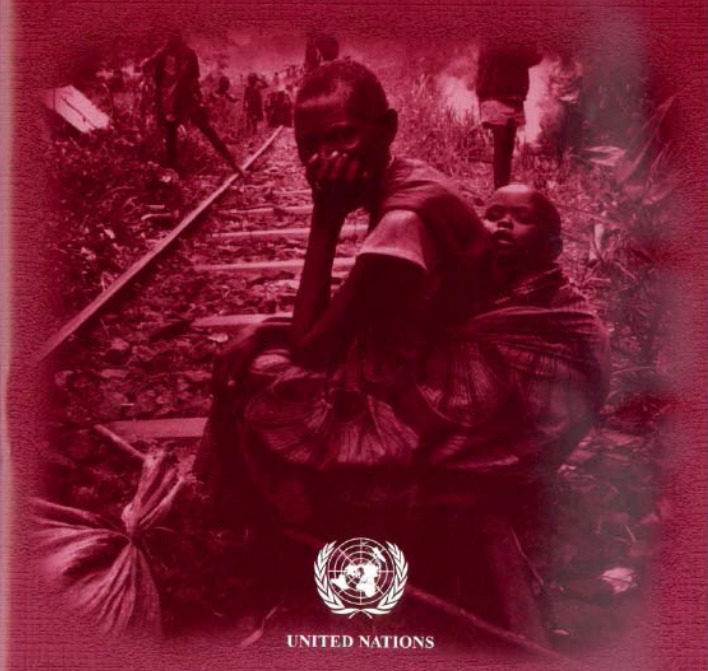국내실향민에 대한 보호 Protection of Internally Displaced Persons
 (동영상: http://www.atha.se/thematic-areas/protection-idps-and-refugees)
(동영상: http://www.atha.se/thematic-areas/protection-idps-and-refugees)
국내실향민(Internally displaced persons: IDP)은 “자신의 집 또는 일상적 거주지에서 강제적 또는 의무적으로 도피하거나 떠나도록 된 사람들, 특히 무장 분쟁, 무분별한 폭력 상황, 인권 유린, 자연재해 또는 인공적으로 발생한 재해 등의 피해를 피하거나 그 영향으로 인해 실향된 사람들 중 국제적으로 인정된 국경을 넘지 않은 사람들”을 뜻합니다. (국내실향 지침 (Guiding Principles on Internal Displacement), Introduction, para. 2)
국제인도법(IHL)과 국제인권법(HRL)은 실향을 방지하고, 발생한 국내실향민들의 기본적인 권리를 보장하는데에 초점을 맞추고 있습니다. 고문과 그 밖의 잔혹한, 비인도적인 또는 굴욕적인 대우나 처벌을 금지하고 신변의 안전과 의식주, 교육, 노동의 권리를 보호하고 궁극적으로 무사히 귀환하여 재정착할 수 있도록 하는 취지입니다. 국제인도법은 시민들의 안전이나 군사적으로 필수적인 상황들을 제외하고는 민간인들을 강제로 거주지에서 이동시키는 것을 분명하게 금지하고 있습니다.
Internally displaced persons are “persons or groups of persons who have been forced or obliged to flee or to leave their homes or places of habitual residence, in particular as a result of or in order to avoid the effects of armed conflict, situations of generalised violence, violations of human rights or natural or human-made disasters, and who have not crossed an internationally recognised State border.” (Guiding Principles on Internal Displacement, Introduction, para. 2)
International humanitarian law (IHL) is a law that is applicable in situations of armed conflict, whether international or non-international. If Internally Displaced Persons in a certain State, involved in an armed conflict then, they are considered civilians, provided they are not taking an active part in the hostilities, and as such, are entitled and should be entitled civilian protection. International Human Rights law (HRL), applicable both in times of peace and in situations of armed conflict, provides also important protection to Internally Displaced Persons.
When it comes to IHL, the law prohibits compelling civilians to leave their place of residence unless either their security or imperative military necessity render this essential. If respected, the general rules of international humanitarian law that protect civilians can prevent displacement or, should it occur, offer protection during displacement.
HRL aims to prevent displacement and ensure basic rights should it occur. The prohibition on torture, cruel, inhuman or degrading treatment or punishment, and the right to peaceful enjoyment of property and to home and family life are of particular importance for the prevention of displacement. The right to personal safety and to a home, as well as the rights to food, shelter, education and access to work offer vital protection during displacement. Many of these rights are also of relevance to the issue of return. International humanitarian law expressly prohibits compelling civilians to leave their place of residence unless either their security or imperative military necessity render this essential.
(Source: ICRC)
Helpful Links
* 국내실향 지침을 포함해 국내실향민 문제에 관한 법률, 정책, 보고서 자료 등을 종합한 국제 데이터베이스: Guiding Principles on Internal Displacement, The Brookings-Bern Project on Internal Displacement. <http://www.idpguidingprinciples.org>
* 아프가니스탄, 콩고, 이라크, 미얀마, 수단, 네팔, 파키스탄 등 국내실향민 문제에 가장 많은 영향을 받고 있는 15개 국가들의 실향 방지와 국내실향민 보호 정책과 관행에 대한 리포트: “From Responsibility to Response: Assessing National Approaches to Internal Displacement,” Brookings Institute, November 2011. <http://www.brookings.edu/reports/2011/11_responsibility_response_ferris.aspx>
관련 활동분야
관련 글
- 2011년 12월 20일
- 2011년 12월 26일